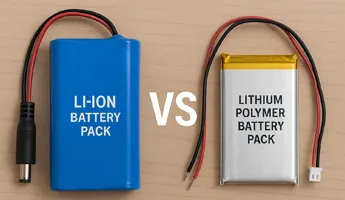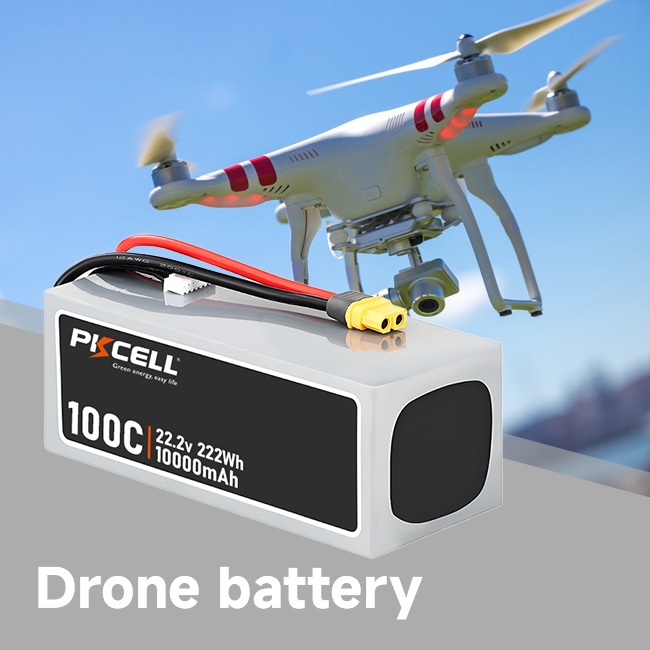
Introduction
CPAP machines are life-changing devices that help people with sleep apnea breathe properly through the night. These machines are usually powered by electricity, but what happens when you’re away from a power source? But what happens when you’re traveling, camping, or the power goes out? In this article, we’ll explore what CPAP batteries are, why they’re important, and how to choose and use the right one safely.
Understanding CPAP batteries
What is a CPAP Machine?
A CPAP (Continuous Positive Airway Pressure) machine is a medical device. It is mainly used for treating obstructive sleep apnea (OSA). A CPAP device sends a steady stream of air through a mask. This keeps your airway open while you sleep. There are several kinds of CPAP machines. These include standard CPAP (which has constant pressure), BiPAP (Bilevel Positive Airway Pressure), and APAP (Auto-Adjusting Positive Airway Pressure). These devices are essential. They help people sleep without interruptions, reduce snoring, and reduce health risks like high blood pressure and heart issues.

What is a CPAP Battery?
CPAP machines need power to work. This makes having a good power source significant. A CPAP battery is a portable way to supply power. It lets you use your CPAP device even when you can’t connect it to a wall outlet. You might want a CPAP battery backup to sleep on the plane for long flights. It’s also great for camping, RV trips, or when you’re in places without power. Most importantly, a CPAP backup battery can save you during power outages. It helps make sure your sleep therapy goes on without a break.
Why Do We Need a Battery Backup for CPAP?
A battery backup for CPAP machine is crucial for your health. It helps to be ready for times when there is no power. This could happen during a blackout at home, a delayed flight, or even a camping trip in the woods. A CPAP battery backup gives you peace of mind. It ensures your treatment won’t stop, so you can breathe easily and sleep well.
Different Types of CPAP Backup Battery
CPAP batteries are essential. They help you use your CPAP device whenever you need it, no matter where you are. There are different types of batteries, and each has its own special features. Some batteries are built into the machine, while others are outside and connect with a cable. Let’s explore the most common types.

1. Lithium-ion Batteries
Lithium-ion batteries are light, small, and charge fast. They are commonly used in portable CPAP battery pack because they have a high energy density and can last long. These batteries are great for people who travel a lot or need a dependable backup. They work well with most CPAP medical machines, especially the newer ones that use less power.
2. Deep Cycle Lead-Acid Batteries
Deep-cycle lead-acid batteries are bigger and heavier than lithium-ion batteries. However, they are cheaper and last longer. They provide steady power for a long time, which makes them a good choice for backup power at home. You often find them in RVs, boats, or older CPAP devices. However, they need more upkeep and are not great for travel because they are heavy and take longer to charge.
3. Lithium Iron Phosphate (LiFePO4) Batteries
Lithium iron phosphate batteries are a safer and more reliable type of lithium battery. They last longer, stay stable in heat, and are very safe. However, they are bigger and cost more initially compared to other options. These batteries are ideal for people who care about safety, need high power, and want something that lasts a long time.
How to Choose A Suitable Battery Backup for CPAP Machine?
Choosing the correct battery backup for CPAP machine is not just about finding the cheapest or lightest option. You need to consider several factors to ensure it meets your needs. The two most important things to think about are how well it works with your CPAP medical device and your personal needs.

Compatibility with Your CPAP Devices
Before buying a battery for CPAP machine, ensure it works well with your CPAP device. Check your user manual, which often shows the battery type and power needs. If you are unsure what to get, ask the maker of your machine or a trusted expert. Using the wrong battery can stop your machine from working right and could create safety concerns. Here are some critical things to consider:
- Power Output (Watts): Before buying a battery, check how much power your CPAP machine uses. Basic models usually need 30–60 watts, and BiPAP machines may need 80–100 watts. Use this information to pick a battery that can power your machine for the whole night.
- Capacity (Ah or Wh): Battery capacity shows how long the battery will last. A higher capacity means you can sleep longer without recharging. However, it may also mean the battery is bigger and more costly. Choose a size that works for how long you need it.
- 電壓 (V): CPAP machines need a specific voltage, usually 12V or 24V. Using a too-high or too-low voltage can hurt the machine. Always make sure the voltage matches what your CPAP needs.
- Size & Weight: Heavier batteries might last longer but aren’t ideal for traveling. If you often move or use your CPAP while camping or flying, look for a small, lightweight battery. Also, ensure its size fits well in your device or travel bag.
Other Personal Factors to Consider
- User Needs & Preferences: Consider how you will use your CPAP machine battery. Pick a high-energy and powerful battery if you travel a lot or spend nights outdoors. A smaller battery can be enough for home use or short trips. Get a strong battery for outdoor activities or around tough weather. A sturdy outer case protects it from bumps, heat, and cold.
- Runtime & Lifespan: Check how long the battery can run your CPAP machine. Choose one that will work for the whole night (usually 8–10 hours). Look for batteries that can last through many charges so you do not have to buy new ones too soon.
- Charging Time & Method: Some batteries charge faster than others. If you are busy often, quick-charge options will help. Also, check if the battery can be charged using solar power or in a car for more choices.
- Extra Features: Some useful extras might include USB ports, LED lights, humidifiers, built-in inverters, or the ability to power other devices. These features can make your battery more useful.
- Safety Features & Certifications: A good battery should be protected against overcharging, overheating, and short circuits. It may also keep working during power outages and have uninterruptible power supply (UPS) functions. Look for certifications like CE, UL, or FCC to ensure safety and reliability.
- Budget & Cost: While higher-end batteries might cost more, they often last longer and perform better. Cheaper options may save money upfront but need replacement more frequently. Set a budget that balances cost and performance without sacrificing safety.
- Brand Quality & Reputation: Always pick batteries from brands known for safety and reliability. A trusted name usually means better performance, customer support, and peace of mind.
Best Practices for Safe CPAP Battery Backup Use

Follow some simple tips to keep your CPAP battery backup safe and working well for a long time. Store it properly, charge it correctly, and take good care of it. Doing this can help prevent problems. It also ensures your battery is ready to power your CPAP device whenever needed.
Storage and Disposal for CPAP Machine Battery
Store your battery for CPAP in a cool and dry place. Keep it away from heat, sunlight, and damp areas. Please don’t leave it in places that are too hot or too cold. Extreme temperatures can damage the battery’s life and performance. Also, keep it clear of anything that could catch fire. Avoid letting metal objects, like coins or keys, touch the battery terminals. This can cause a short circuit. Always store the battery out of reach of children and pets. When the battery reaches the end of its life, please recycle it at a certified center. Please do not throw it in the trash or burn it, as this can harm the environment.
Proper Charging Tips
Follow the instructions that come with your CPAP battery pack. Always use the charger made for that specific battery model. Using the wrong charger can hurt the battery or make it get hot. When the battery is full, unplug it to stop overcharging. If you have used the CPAP devices for a long time, let them cool down before charging again. Try to charge it when it gets to about 20–30% instead of letting it drain completely. Even if you don’t use it often, charge it once a month to keep it in good shape. If you plan to store it for a while, keep it at about 50% charged. Always charge it in a place with good airflow. Never charge a battery that looks damaged or swollen.
The Ways of Extending CPAP Battery Pack Life
Stick to the care tips from the battery maker. Do not use the CPAP machine in extreme heat or cold. It can shorten the battery life. If you have more than one battery, rotate their use to keep them all in good condition. Use your CPAP machine battery backup often, and do not let it run down completely. When possible, try slow charging. It is better for the battery. Clean the terminals regularly with a dry cloth to get rid of dust and dirt. This helps prevent corrosion. If you store the battery, keep it 50–70% charged. Place it in a protective case or insulated pouch. Do not drop or hit the battery, and check it often for cracks or leaks.
Common CPAP Battery Problems and Solutions

Over time, batteries for CPAP may run into issues. Here are some common problems and ways to solve them:
- CPAP won’t turn on: Ensure the battery is fully charged and properly connected. If needed, try a different battery.
- Battery not holding a charge: This might mean the battery is getting old or there is a problem with the charger. Try charging the battery with a different charger or clean the terminals. If the problem continues, you may need a replacement.
- Won’t charge: Check the power outlet, charger, and battery contacts. Let the battery pack for CPAP machine cool if it’s too hot before charging again.
- Overheating: Stop using it right away. Let it cool and check for airflow around it. If overheating happens often, replace the battery.
- Battery swelling or leaking: This is a serious safety issue. Stop using the battery right away. Dispose of it properly by following the manufacturer’s instructions.
- Wrong battery level readings: Fully charge and then discharge the battery to reset the display. If it still shows errors, it may be time to replace it.
- Corroded terminals: Wipe them gently with a soft, dry cloth. If the corrosion is severe, get a new battery.
Where to Buy Reliable Batteries for CPAP Machine?
When you need a new CPAP battery backup, buying from a trustworthy place is vital. This way, you can avoid getting low-quality or fake batteries. PKCELL is a name you can trust for batteries. We focus on smart designs and good performance. Our goal is to keep our customers happy. Our custom battery solutions work well with any CPAP device. A custom battery for your CPAP offers better performance, a longer life, and more reliability—made just for you. Here are a few reasons why many people choose us:
- Affordable and Helpful Service: Our batteries for CPAP machine are fairly priced and built to last. Our friendly team is here to help you with any questions.
- Tailored Compatibility: These batteries are made to exactly fit your CPAP model’s voltage, size, and power needs. We can even create one just for your CPAP device.
- Reliable Power Supply: Made with quality materials and tested for safety, PKCELL batteries give steady power. This means your CPAP device runs all night without shutting off.
- Built-in Safety Features: Every battery focuses on safety. It protects against overcharging, short circuits, and over-discharging. This keeps your machine and battery life safe.
- OEM/ODM Services: This is great for businesses or people who need special CPAP power solutions.
🛒 Are you looking for the best battery backup for CPAP machine? Let PKCELL make a battery that meets your needs just right. Reach out to us today—we are here to help!

總結
A CPAP battery backup is very important. It is not just a nice extra; it helps keep your sleep apnea treatment going. Whether traveling, camping, or facing a power cut at home, having a battery for your CPAP machine can give you peace of mind. Knowing about the different kinds of CPAP batteries and their features can help you choose the best one. Look for reliable brands that make quality products. A wise choice will make your CPAP experience easier. It will help you feel relaxed and get a good night’s sleep, no matter where you are.
Frequently Asked Questions
How long should a Battery for CPAP Machine last on one charge?
The runtime of a CPAP backup battery can change depending on several factors. These include how much power the battery can store, how much power the CPAP machine uses, and whether accessories like heated humidifiers are being used. Usually, a fully charged battery backup for CPAP machine can last from one to three nights.
Are Batteries for CPAP allowed on airplanes?
Yes, most batteries for CPAP machine can be taken on airplanes as carry-on items. Still, there may be rules about the size and capacity of the batteries. It is crucial to check with your airline before your trip to make sure you know their rules.






